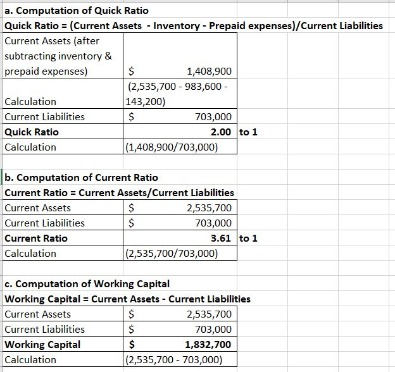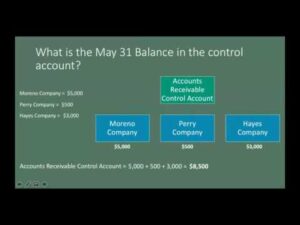
If you run a large e-commerce operation, then you may benefit from Sage Intacct, cloud accounting software that’s designed for more accounting basics complex operations. It includes not just accounting tools but also payroll and HR software to support a large business with multiple employees. Below, we explore the pricing plans, features, pros and cons of the top e-commerce accounting software you need to consider. Whether you’re navigating the complexities of an ecommerce enterprise or managing a different type of small business, top-notch bookkeeping is indispensable to ensure growth. High-caliber accounting software provides a clear and instant view of your business’s financial health, making your decision-making process significantly more straightforward.

Advantages of Cloud-Based Ecommerce Accounting Software
- When you are doing ecommerce bookkeeping sales tax and income tax are important parts of your accounting needs.
- It helps you improve the accuracy of your financial recording processes and streamline accounting workflows by automating repeatable manual tasks.
- This includes metrics like cash flow and gross profits, balance sheets, and profit and loss (P&L) statements.
- FreshBooks generates straightforward reports where you can see areas of growth, and your dashboard stays up-to-date to avoid any surprises.
The integration capacity of accounting software with popular ecommerce platforms is crucial for seamless data synchronization and effective financial management. In this section, we will discuss the integrations available for Shopify, BigCommerce, WooCommerce, and A2X. Share updates and project information with your employees and clients by using FreshBooks ecommerce accounting software. You can send invites based on roles so that users can collaborate, share information and files, provide updates, feedback, and track project progress.
WooCommerce and A2X Connections
The first step in setting up your e-commerce accounting is to pick an accounting system. Although e-commerce accounting software will typically let you choose either method, many default to accrual accounting. E-commerce accounting is the process of recording, tracking, and analyzing financial transactions that occur within an online business. We included a free option for companies that are just getting started and not quite ready to make an accounting software commitment.
There is no free trial, but a Test Drive account that you can access by visiting Sage 50’s pricing page is available. It gives you full access to a cloud-hosted version of the Sage 50 desktop software, complete with sample data. Its mobile app is also not as functional as QuickBooks and Zoho Books, as it doesn’t allow you to accept payments from customers. Another significant drawback to Xero compared with QuickBooks is the relatively small number of independent bookkeepers available in the US to help you manage your books. FreshBooks provides a clear picture to your clients on costs and project details to that you can get started on the next project. FreshBooks even allows clients to accept quotes online and supports your business through each step.
FreshBooks can track the hours worked for the whole team so that you can view productivity from a central location. QuickBooks Online offers a lot of functionality at a much more affordable price than other similar products. Its reporting suite is also highly touted for its advanced reports and profitability projection functionality. Ultimately, the best eCommerce accounting software for you will depend on the immediate and future needs of your business. Accrual accounting, unlike cash accounting, measures a transaction when funds are earned or expenses are incurred, not when payment changes hands. There’s the day your product is market-ready, the day you open your online store to the world, and the day you make your first sale—a major step that calls for celebration.
FreshBooks e-commerce accounting software is built to provide you with the tools needed to continue the success of your business. FreshBooks generates straightforward reports where you can see areas of growth, and your dashboard stays up-to-date to avoid any surprises. When tax time comes, FreshBooks perpetual inventory system vs periodic inventory system has you covered so that you can get through tax season with ease.
Payroll, Timesheet, and Billable Hours
This allows you to import your sales transactions, manage inventory, and track expenses all from one platform. As one of our best bookkeeping software for ecommerce businesses, Zoho Books has remarkable accounting features like QuickBooks and Xero. However, it offers a free plan for very small businesses and excels in mobile accounting. It earned a perfect score in mobile accounting because it offers all of the features we wanted to see in a mobile app, including receipt capture, invoicing, and payment processing.
We evaluated our best ecommerce accounting software by conducting an asset disposals report in-depth internal case study where our experts determine the strengths and weaknesses of each platform. Ecommerce accounting involves accounting for online transactions, which are often paid for with credit cards or other digital payment systems. Unlike traditional retail stores, an ecommerce company must track and reconcile sales, returns, refunds, and payments from multiple sources, such as PayPal and Stripe. Additionally, ecommerce companies must account for and track inventory, shipping, taxes, and other transactional data.
The Zoho ecosystem contains 50+ apps that integrate with Zoho Books, enabling you to operate your entire business on one platform. Business accounting requires keeping track of all of a company’s transactions, inventory, and financial data. This includes metrics like cash flow and gross profits, balance sheets, and profit and loss (P&L) statements. A2X offers dozens of pricing plans that start at $19 a month for individual sales channels and $79 a month for multiple sales channels. The pricing tiers move up incrementally from there and some even dip into the thousands of dollars for large businesses.
